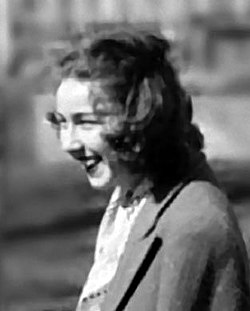Flannery O'Connor Quote
From 15 to 18 is an age at which one is very sensitive to the sins of others, as I know from recollections of myself. At that age you don’t look for what is hidden. It is a sign of maturity not to be scandalized and to try to find explanations in charity.
Flannery O'Connor
From 15 to 18 is an age at which one is very sensitive to the sins of others, as I know from recollections of myself. At that age you don’t look for what is hidden. It is a sign of maturity not to be scandalized and to try to find explanations in charity.
Related Quotes
More often than not, people who are obsessed with their desires and feelings are generally unhappier in life vs. people that refocus their attention on service to others or a righteous cause. Have you...
Shannon L. Alder
Tags:
achievement, altruism, attitude, change, character, charity, choose the right, community, crossroads, desires
About Flannery O'Connor
Mary Flannery O'Connor (March 25, 1925 – August 3, 1964) was an American novelist, short story writer, and essayist. She wrote two novels and 31 short stories, as well as a number of reviews and commentaries.
O'Connor was a Southern writer who often wrote in a sardonic Southern Gothic style. She relied heavily on regional settings and grotesque characters, often in violent situations. In her writing, an unsentimental acceptance or rejection of the limitations, imperfections or differences of these characters (whether attributed to disability, race, crime, religion or sanity) typically underpins the drama.
O'Connor writing often reflects her Catholic faith, and frequently examines questions of morality and ethics. Her posthumously compiled Complete Stories won the 1972 U.S. National Book Award for Fiction and has been the subject of enduring praise.
O'Connor was a Southern writer who often wrote in a sardonic Southern Gothic style. She relied heavily on regional settings and grotesque characters, often in violent situations. In her writing, an unsentimental acceptance or rejection of the limitations, imperfections or differences of these characters (whether attributed to disability, race, crime, religion or sanity) typically underpins the drama.
O'Connor writing often reflects her Catholic faith, and frequently examines questions of morality and ethics. Her posthumously compiled Complete Stories won the 1972 U.S. National Book Award for Fiction and has been the subject of enduring praise.
